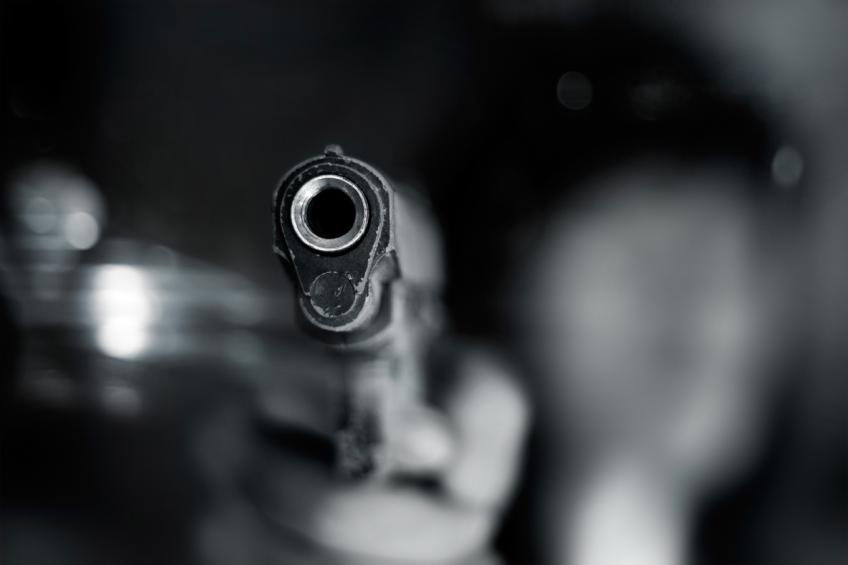
By: Isabel Mercado, Bolivia
Sitting in front of one of the computers of a narrow Internet center in Santa Cruz de la Sierra, the Serbian Goran Popovic, a former military "red beret", who as part of the Balkan mafia had an international arrest warrant for drug trafficking, could not see the face or the Bolivian hitman who approached him from behind. He shot him three times in the skull.
Only moments after the crime was perpetrated, at approximately 1:30 p.m. on July 14, 2014, an investigation would begin that would unintentionally reveal that members of the structure of "Grupo América" – a relevant faction of the Balkan mafia that since 2008 has been trafficking drugs from South America to Europe. It had already been installed in Bolivia for years.
The main suspect, identified as the mastermind of that murder, was presented almost four months later. It was the Bolivian Leonardo Vaca Diez Gentile, who already had a pending process for homicide and about a dozen records for drug trafficking, kidnapping, robbery, assaults and fraud. The mobile? Evading the payment of a debt of US$140,000 that he had with Popovic and his criminal organization, according to the statement of the Serbian's driver and of course, version rejected by Vaca Diez.
But that trail of blood that betrayed the presence of "Grupo America" in the country did not begin in Santa Cruz lands, but on the other side of the border, eight days earlier, in the residential neighborhood of Miraflores in Peru. There, on July 6, 2014, Frederick Goran Stavric, another seasoned criminal with more than 20 years of criminal career, was killed while eating at the table of a McDonald's.
The striking fact of that first crime in Peru is that the leader of the group of three identified hitmen was the Bolivian Diego Rivera Landivar, who also surprised his victim from behind and shot him five times. A series of official reports and information from Serbian media revealed that both deaths were linked, but in the absence of a coordinated investigation between the police forces of the affected countries, two hypotheses emerged about the motives of both hitmen.
The first theory pointed to a debt and the war initiated between Colombian cartels and the Balkan mafia, this motivated by the control of territory and the business of sending South American drugs to Europe.
The second theory was that of an internal settling of scores, among the members of the Balkan mafia, who days before Stavric's murder lost three tons of Bolivian drugs, valued at US$60 million, in an operation managed by the Chilean Police. Both murders, considered an exemplary punishment for losing that shipment, were attributed to Darko Saric, considered the "Chapo Guzmán of the Balkans" and pointed out as the second man in the power structure of "Grupo America".
However, despite the number of international reports, both from Interpol and international security agencies, Serbian government authorities and specialized media, in Bolivia, the Balkan mafia groups and the "Grupo America" managed to stay off the radar of justice and do not appear in the reports of the anti-drug intelligence forces or the Bolivian Prosecutor's Office.
The links
At the scene of the crime, inside the narrow internet center, in Santa Cruz, that July 14, in addition to the recordings of the surveillance cameras, the data of the frightened witnesses and the body of Popovic, the Police collected a Bolivian identity card, for which for a few days it was presumed that the victim was a fellow national by name, David Etérovic Melgar.
However, 10 days later – while the body still remained in the morgue with no one to claim it – after the comparison of fingerprints, authorities in Croatia and Serbia confirmed that the victim of the Bolivian hitman was Goran Popovic, born in Croatia in 1974 and naturalized in Serbia; seasoned international criminal who as a first antecedent had to have been part of the paramilitary group "Volunteer Guard".
Later, in 2021, Goran and her brother, Zoran Popovic, participated in the kidnapping of a Serbian businessman, for which they were arrested and sentenced to six years in prison, but both managed to escape from prison four years later. According to media reports in that country, the Popovic brothers remained hidden in Croatia, and in 2009 only Zoran's recapture was achieved.
Goran Popovic left a criminal trail that ended with his death in Santa Cruz. Linked to arms and drug trafficking from South America to Europe, as part of the Balkan mafia, the last time there was an official report of him, in Europe, was in 2011, when he was linked to the trafficking of 170 kilos of drugs in Thessaloniki, Greece, case for which Interpol issued the international arrest warrant.
Subsequently, the data of the Serbian authorities indicate that he managed to flee to South America, where he moved easily between, Argentina, Peru, Colombia, Ecuador, Bolivia and Brazil. From there arises the link with Darko Saric, who in 2018 was extradited from Peru to Serbia where, thanks to the economic power he holds, he managed to get out of prison and maintain a judicial fight that ended with a 15-year sentence for international drug trafficking.

